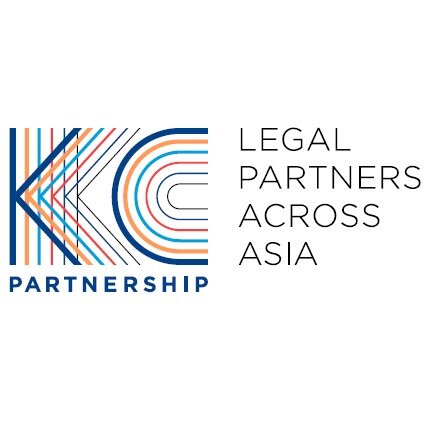Best Probate Lawyers in Harbourfront
Share your needs with us, get contacted by law firms.
Free. Takes 2 min.
List of the best lawyers in Harbourfront, Singapore
About Probate Law in Harbourfront, Singapore
Probate is the legal process involved in administering the estate of a deceased person, resolving all claims, and distributing the deceased person's property under a will. In Singapore, the Probate process ensures that the estate is properly managed, debts are paid, and the remaining assets are distributed according to the will or, if there is no will, according to the rules of intestacy. Harbourfront, being part of Singapore, follows the same laws and procedures related to Probate, which can involve complex legal requirements and procedures.
Why You May Need a Lawyer
Engaging a lawyer in the Probate process is often necessary due to the intricate nature of estate law, especially in the following situations:
You need to apply for a Grant of Probate or Letters of Administration.
The deceased left a complex will with multiple assets and beneficiaries.
There are disputes among beneficiaries or claims against the estate.
The executor is unfamiliar with estate management and Probate procedures.
There are potentially complex tax implications, such as those relating to inheritance tax or outstanding debts.
Local Laws Overview
The Probate laws in Singapore are governed by the Probate and Administration Act. Some key aspects include:
Grant of Probate: Issued if the deceased has left a valid will, appointing an executor to manage the estate.
Letters of Administration: Applied for if the deceased did not leave a will, allowing an administrator to manage the estate.
Small estates: An expedited probate process exists for small estates valued at less than $50,000.
Intestacy Rules: If there is no will, the Intestate Succession Act determines how the estate is distributed among surviving family members.
Frequently Asked Questions
What is the first step in the Probate process?
The first step is to determine if the deceased person left a will. If there is a will, the executor needs to apply for a Grant of Probate. If there's no will, you may need to apply for Letters of Administration.
How long does the Probate process take in Singapore?
The duration varies depending on the complexity of the estate. It can take anywhere from a few months to over a year, particularly if there are disputes or claims.
Can a will be contested in Singapore?
Yes, a will can be contested on various grounds such as lack of mental capacity, undue influence, or improper execution of the will.
What if the executor does not fulfill their duties?
Beneficiaries can take legal action to remove or replace the executor, or hold the executor liable for any mismanagement of the estate.
Do I have to go to court for Probate?
Appearances in court are generally rare; the process is mostly administrative. However, disputes may require court hearings.
Are there any taxes on inheritance in Singapore?
As of now, Singapore does not impose any inheritance taxes.
How is the value of the estate determined?
The value of the estate is calculated based on the market value of all assets at the date of death, minus any liabilities.
What happens if there are outstanding debts?
Debts must be settled before any distribution to beneficiaries. The executor or administrator is responsible for paying these from the estate.
Can a foreigner be an executor or administrator?
Yes, but they may need to appoint a local resident or professional service to represent them legally in Singapore.
Is it necessary to engage a lawyer for small estates?
While it may not be strictly necessary, having legal assistance can ensure that the process is handled correctly, even for small estates.
Additional Resources
For more help with the Probate process, consider these resources:
Singapore Courts: Provides information on Probate processes and documents required.
Law Society of Singapore: Offers a directory of qualified lawyers who can assist with Probate matters.
AWARE (Association of Women for Action and Research): Offers support and legal clinics that might be helpful for beneficiaries dealing with Probate issues.
Next Steps
If you need legal assistance in handling Probate in Harbourfront, Singapore, consider the following steps:
Gather all relevant documents such as the death certificate, will, asset inventory, and debt information.
Consult a qualified Probate lawyer to assess your needs and plan a course of action.
Engage the lawyer’s services to ensure all legal requirements are met promptly and accurately.
Stay informed throughout the process and communicate with other beneficiaries as needed.
Lawzana helps you find the best lawyers and law firms in Harbourfront through a curated and pre-screened list of qualified legal professionals. Our platform offers rankings and detailed profiles of attorneys and law firms, allowing you to compare based on practice areas, including Probate, experience, and client feedback.
Each profile includes a description of the firm's areas of practice, client reviews, team members and partners, year of establishment, spoken languages, office locations, contact information, social media presence, and any published articles or resources. Most firms on our platform speak English and are experienced in both local and international legal matters.
Get a quote from top-rated law firms in Harbourfront, Singapore — quickly, securely, and without unnecessary hassle.
Disclaimer:
The information provided on this page is for general informational purposes only and does not constitute legal advice. While we strive to ensure the accuracy and relevance of the content, legal information may change over time, and interpretations of the law can vary. You should always consult with a qualified legal professional for advice specific to your situation.
We disclaim all liability for actions taken or not taken based on the content of this page. If you believe any information is incorrect or outdated, please contact us, and we will review and update it where appropriate.








